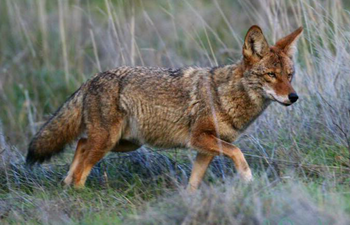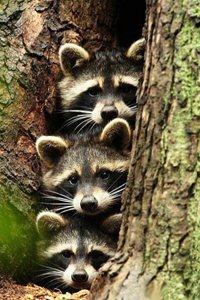The Strongsville Department of Animal Control is committed to making Strongsville a pleasant place for both people and animals to live.
If you have lost or found a pet, have questions regarding wildlife or want to report an animal concern, contact:
Chuck McCleary, Animal Control Officer
(440) 580-3180
animal.control@strongsville.org
If calling, please leave a message. Your call will be returned.
For urgent animal-related matters, call Strongsville Police at (440) 238-7373.
Report a Lost Pet
To report a missing animal, e-mail the following information to the Animal Control Officer at
animal.control@strongsville.org:
Your name, address and phone number
A description of the animal and its name
Where and when the animal was lost
A photo of your pet
If the animal returns home after you have reported it missing, PLEASE NOTIFY THE ANIMAL CONTROL OFFICER through e-mail or by calling (440) 580-3180 so he can remove the pet from the database.
Local Animal Laws
Strongsville laws prohibit dogs from running at large. The city also has ordinances regarding barking dogs, abandoning pets, animal cruelty and other matters. Click here to see Strongsville’s animal-related ordinances. (Part 6, General Offenses, Chapter 618)
Dog Licenses
Ohio requires all dogs to be licensed. Licenses are available through the Cuyahoga County Fiscal Office, which can be reached at (216) 443-3513..
Licenses may be purchased online, or through the mail by printing a form from the Fiscal Officer's website. There are also a number of remote sites throughout the county that are authorized to sell dog licenses. Click here for their locations.
Coyotes

The Animal Control Office receives numerous calls about coyotes, which are often seen in neighborhoods. For important information on recognizing coyotes and dealing with coyotes, please click here.
Wildlife
The Ohio Department of Natural Resources Division of Wildlife offers advice on how to keep raccoons, skunks, deer and other animals from becoming a problem.
Coyotes: If you see a coyote in your yard, don't panic. Coyotes are prevalent in all 88 Ohio counties. They are slender, have an appearance similar to a medium-sized dog and have a bushy tail, often tipped in black. If you see one, make sure small pets are indoors. Clap your hands and shout in a stern voice to scare them off. Click here for more information on how to identify a coyote, how to keep them away and what to do if you see one.
Raccoons, squirrels, skunks, opossums and groundhogs: Wildlife can become pests in an urban setting. Click here for a quick rundown on how to keep these animals out of your yard and your garbage cans, and what to do if one ventures inside your home or gets stuck in your chimney.
Canada geese: Geese are not only messy, but can be dangerous. They can quickly lose their fear of humans and attack. Click here for some tips on how to handle geese and keep them away from your pond.
Abandoned wildlife: If you see a baby animal or nest of birds with no adult in sight, ODNR recommends that you leave it alone. Often, a mother animal leaves her babies while she searches for food. Click here for more information on how to handle situations involving young wildlife.
Wildlife officer: The ODNR Wildlife District Office for Northeast Ohio can be reached at (330) 644-2291.
Trapping wildlife isn't the solution. Prevention is.

The animal warden gets frequent calls about raccoons and other animals in yards, especially in the spring -- wildlife mating season -- when animals are looking for a place to give birth. Your shed and under your deck are ideal places for that.
The number of animal/human conflicts can be reduced by taking some simple steps to animal-proof your property. Trapping a raccoon and removing it is not the solution -- these animals are territorial and once they are removed out of their territory, another raccoon will QUICKLY occupy the existing territory and the conflict is most likely to repeat itself, creating a never-ending cycle.
Click here for some helpful tips on how to keep animals out of your trash, away from your yard and off your roof.
If your pet is sprayed by a skunk, click here for a way to get rid of the smell.
Rabies Prevention
The Cuyahoga County Board of Health requires all dogs and cats to be vaccinated against rabies when they turn 4 months old.
Animals are required to be issued a CCBH rabies vaccination tag or microchip after receiving the rabies vaccination at a local veterinary office or clinic.
The Board of Health operates a rabies prevention program aimed at keeping the disease from spreading to pets and people.
The CCBH works with local animal control officers in the event of an animal bite.
For more information on rabies, visit the Board of Health website.
Animals in Public Venues
The Cuyahoga County Board of Health also oversees animals in public venues. Anyone displaying animals in a pet store, petting zoo or other exhibit must be licensed annually and undergo inspection to make sure precautions are being taken to protect the public from disease.
For more information, visit the Board of Health website.